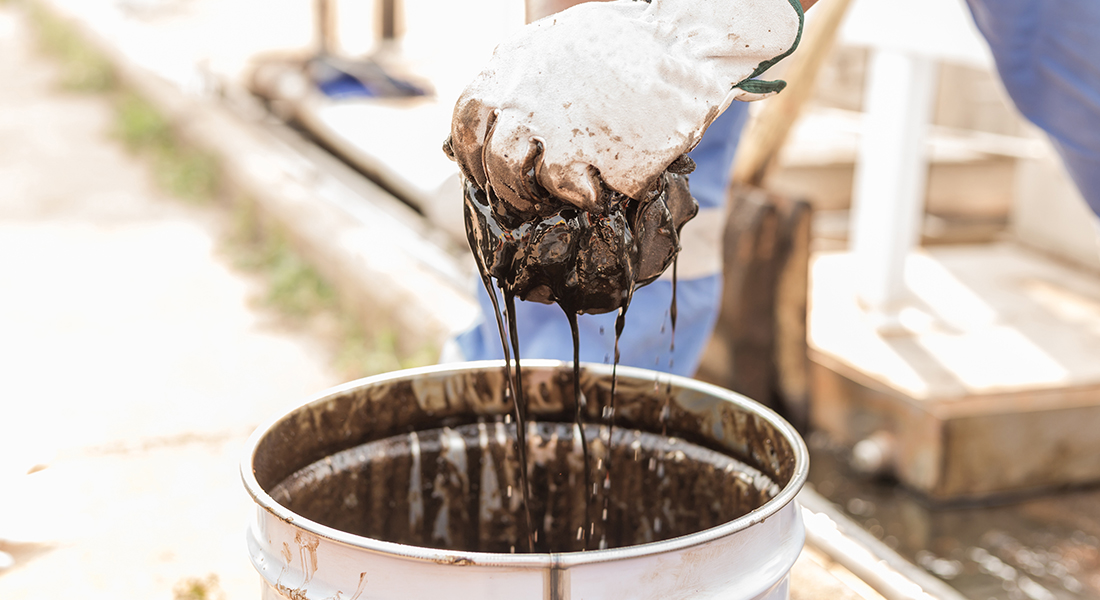
07 Jan The Practical Aspects of Reporting an Environmental Spill
Reading Time: 6 minutesPeriodically, ESA gets a call from someone who admits that an environmental spill occurred on their property but that nothing was done about it when it happened. It’s not unusual; after all, sometimes it’s just easier to ignore a problem than to deal with it at the time. (Note: The NJDEP refers to “incidents,” not spills. Environmental spills are merely one form of incident, but, for the purposes of this article, we will use the word “incident” as defined below interchangeably with “spill”).
This article briefly addresses what the law requires when you encounter an environmental spill and, from an environmental consultant’s point of view, the practical aspects of dealing with such incidents. What should you do immediately upon discovering a spill? What should you do if, after ignoring an incident, you now wish to address it? And what should a prospective purchaser of a potentially impacted property (commercial, industrial, or residential) do prior to closing on a deal?
Note: While this article contains some legal information, nothing contained herein is intended to represent legal advice. Readers must seek the advice of their own attorneys for definitive interpretations on how this information pertains to their particular situations.
The Law
Every state has laws regarding how and when to report an environmental spill. Penalties may be imposed for failure to report an incident. In New Jersey, regulations regarding environmental spills are contained within the N.J.S.A. 58:10-23.11: Spill Compensation and Control Act (henceforth referred to as the “Spill Act”).
Reportable Environmental Incidents
A reportable environmental incident occurs when there is a release of a hazardous substance into soil, surface water, or groundwater. A hazardous substance is any of a large variety of petroleum compounds or chemicals cited on various lists published by the Federal Environmental Protection Agency (EPA). An incident can be either the result of an immediate release, or it can be the mere discovery of an impact. And it can involve any amount of hazardous substance. Depending on the substance, the most minute amount can trigger an incident, along with the obligation to report it.
For some people, the phrase “environmental spill” conjures up the image of a 55-gallon drum of “dimethyl-death” getting impaled by the tine of a forklift at a chemical company. Other people think of a vehicular accident involving a tank truck filled with gasoline. Yet others may imagine a leaking petroleum-filled underground storage tank. All of these are good examples of reportable incidents. But it can be far more subtle. For example, if a soil sample taken from your property reveals concentrations of a hazardous substance above actionable levels, it is a reportable incident.
Interestingly, most incidents that involve a building’s interior are not reportable. For example, two common substances, mold and radon, are not reportable under the Spill Act because neither meets the definition of a reportable substance within the Act. Further, if a 55-gallon drum containing a noxious, hazardous (and reportable) substance spills within a building but does not reach soil or groundwater, it is not a reportable incident under the Spill Act.
Who Is Responsible for Reporting and Addressing an Environmental Spill?
Anyone who discovers an environmental spill is obligated to report it. The NJDEP Spill Hotline (1-877-WARNDEP, or 1-877-927-6337) is staffed 24/7, and they receive close to 50,000 calls each year. When an incident is reported, in most cases, the state will simply issue a spill incident number if the incident does not require immediate state attention or involvement. The state will dispatch personnel to investigate if they believe the spill may be an imminent threat to the environment or to the population.. If you are the property owner, ask your environmental consultant for advice on what to say when placing the call, or have your consultant place the call on your behalf. It is in the owner’s best interests to let the state know that they have proactively engaged the assistance of an environmental consultant to address the issue.
Environmental Spills from an Environmental Consultant’s Perspective
ESA’s job is to provide the best advice and solutions to our clients’ environmental issues. It is up to the client to decide whether or not to follow our advice, and ESA is not obligated to report most environmental incidents. However, because ESA is certified by NJDEP for subsurface closure and evaluation, we are obligated to report any incidents involving regulated underground storage tanks. Additionally, Licensed Site Remediation Professionals (LSRPs) have a responsibility to report anything that meets the definition of an Immediate Environmental Concern. An IEC is a condition at a contaminated site where people are exposed to contamination at levels that exceed applicable screening levels or standards. This is one of the reasons that you should NOT engage an LSRP unless and until you are certain you will be moving forward with a remedial project. This last piece of advice applies especially to people who are hoping to purchase a property: during the due diligence phase, your consultant should not be an LSRP.
The Importance of Due Diligence
When contemplating the purchase of a residential, industrial, or commercial property, you MUST perform due diligence prior to closing. The type of due diligence will vary depending on the property, but the purpose remains the same: to determine whether or not there are potential areas of environmental concern that require further investigation. If an environmental impact is identified after you purchase the property, YOU become the responsible party. And, depending on the nature of the incident, your financial liability can easily run into the hundreds of thousands of dollars. Can you still sue the prior owner for failure to disclose the impact? Certainly. But it’s far better to prevent expensive litigation and cleanup costs by performing due diligence prior to closing.
If you are aware of a past environmental incident that occurred on a property you own and have taken no action, you are in violation of the Spill Act, and, theoretically, you are at risk for fines. However, NJDEP encourages property owners to voluntarily step forward and begin the remedial process, and they do not customarily ask when you first discovered the incident.
Proactively Addressing an Environmental Spill
Aside from the obvious necessity of complying with the law, there are several benefits to addressing environmental incidents sooner than later:
The cost of environmental services tends to rise over time. As is true with most products and services, the cost of environmental compliance services today is less expensive than it will be in the future. While exceptions do occur, this rule is fairly solid. So, if you have the money, address your environmental spill now.
Insurance coverage typically requires timely reporting of an incident. You may have insurance coverage that is, in part, contingent upon properly reporting the incident in accordance with the law and promptly reporting the incident to your insurance company. ESA had a client who lost several hundred gallons of fuel oil from an aboveground storage tank. The incident was reported to NJDEP, but nothing was ever done. The homeowner did not file an insurance claim because she assumed this loss was not covered. Further, she was erroneously told that, because there were no signs of petroleum (nothing was visible nor was there an odor), she had no problem. Ironically, even though her policy lacked a pollution rider, she may have had coverage because the oil impacted the shallow groundwater. The state owns groundwater, not us. Therefore, groundwater impacts are considered third-party claims, and they are covered by many contemporaneous insurance policies. But this homeowner did not file the claim until more than 10 years after the spill. The insurance company denied her coverage because of failure to report the claim in a timely fashion. At ESA’s urging, the client retained an environmental attorney who specializes in insurance claims. Efforts to get her coverage are ongoing. But make no mistake: the likelihood of coverage would have been dramatically higher had she filed the claim at the time the environmental spill occurred.
Dumping incidents may be handled by the state. On rare occasions, a property owner may find that someone has dumped drums on their property. If this happens to you, do not touch the drums and immediately call the state to report the incident. Tell the state that drums have been dumped on your property, you do not know what they contain, and you are concerned for the safety and welfare of your employees, family, and neighbors. The state will respond immediately and remove the drums at their own cost and expense. Furthermore, you should also notify your insurance carrier of the incident in case your policy covers such situations.
Environmental Laws Protect the Environment and People
Environmental laws are written to protect the environment for the benefit of all citizens. And so it is with the NJ Spill Act. The state created a mechanism to address environmental incidents and compel responsible parties to pay for the work. For more insightful articles on site investigation, environmental remediation, due diligence, LSRP, brownfields, and real property buying and selling strategies that will save you time, money, and aggravation, visit our Industry Insights section.



